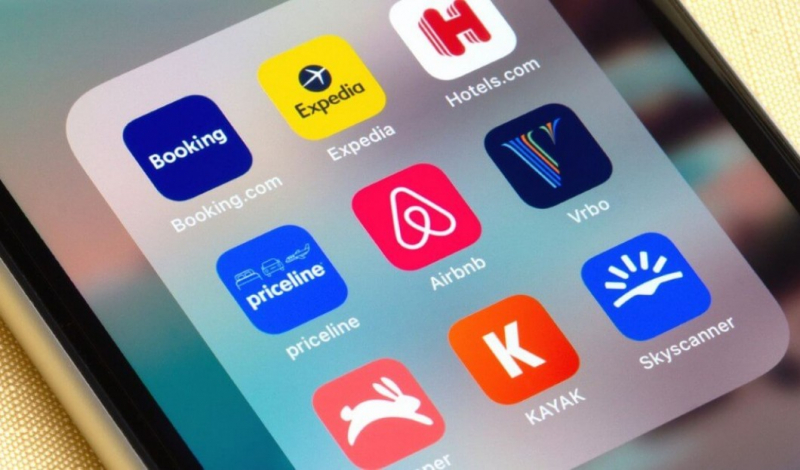In a show of unwavering consumer enthusiasm for travel, the online sector thrived in the third quarter of 2025, posting financials that genuinely surprised analysts. Despite some ongoing global challenges—economic uncertainty and inflation, among others—major players such as Expedia Group, Booking Holdings, and Airbnb each reported significant growth in key areas. This indicated a continued strong desire for both vacations and business trips. Covering the prime summer months from July through September, these results suggested a sector not only recovering but positively taking off.
Expedia Group: Notable Successes in Both B2B and B2C
Expedia Group, one of the travel giants, started off the earnings season impressively, actually surpassing both profit and revenue estimates. The online travel agency pulled in $4.4 billion in revenue, a comfortable 9% year-over-year increase. This growth was thanks to two related strengths: business-to-business (B2B) sales jumped 26%, reflecting a solid recovery in corporate travel, while business-to-consumer (B2C) bookings increased by 7%, as leisure travelers sought out getaways.
Looking more closely, Expedia’s gross bookings—the total value of travel reservations processed—hit $30.7 billion, a 12% increase from the previous year. Booked overnight stays rose 11%, indicating that travelers are choosing longer, more involved trips. On the profitability side, adjusted EBITDA (earnings before interest, taxes, depreciation, and amortization) rose 16% to $1.4 billion, showing efficiency even with rising costs.
According to Expedia’s CEO, Ariane Gorin, this success was due to “strategic investments in technology and partnerships,” which improved the booking process and widened their market. The company is now focused on the holiday season, with these results setting Expedia up as a leader.
Booking Holdings: Summer Demand Leads to Record Bookings
Similar to Expedia’s positive results, Booking Holdings—which includes Booking.com and Kayak, among others—reported results that pleased Wall Street. Gross bookings of this travel giant reached $49.7 billion, an impressive 14% increase year-over-year, as a considerable number of travelers booked accommodations all over the world during the important summer months.
Interestingly, room nights (used to represent overnight stays) rose by 8%, especially in Europe and Asia-Pacific, where pent-up demand from recent years was finally released. The company achieved this despite macroeconomic headwinds like volatile currency fluctuations and geopolitical tensions, but Booking’s varied portfolio ultimately proved valuable.
Executives at the company are optimistic about the rest of the year, citing “healthy international travel trends” as a benefit. Booking’s concentration on easy-to-use innovations, like AI personalization, helps set it apart, ensuring a relatively smooth journey even through potentially difficult circumstances.
Click here to preview your posts with PRO themes ››

Airbnb: International Markets and Flexible Payment Options Drive Growth
Airbnb, always known for doing things differently, completed the positive trend with a quarter that combined consistent U.S. gains with substantial international expansion. Revenue rose 10% to $4.1 billion, while gross bookings grew 14% to $22.9 billion—the most for any Q3 in the company’s history. Nights and experiences booked (a metric that includes stays and add-on activities) increased 9%, representing how travelers want to mix relaxation and adventure.
Net income remained steady at $1.4 billion, matching the previous year, as the platform handled increased marketing spending. However, the real story is in international growth, with India showing standout success. New user sign-ups there significantly increased by 50%, driven by a rising middle class and Airbnb’s localization strategies.
In the U.S., Airbnb has responded to economic concerns by introducing a “Book Now, Pay Later” option, letting guests spread payments over time. This has been particularly effective for those concerned about inflation.
The travel sector’s recovery continues, seemingly recession-proof, with domestic travel remaining surprisingly robust for platforms such as Airbnb. This is largely due to strategies aimed at easing concerns about affordability. Indeed, CEO Brian Chesky characterized recent performance as a “pivotal step” toward a more sustainable model. The company is, moreover, actively expanding into both longer-term housing options and unique “experience” offerings.
Travel Giants’ Future: A Bright Horizon
Overall, financial reports are suggesting continued growth in the travel industry—roughly 10% to 14% on average. Bookings and stay rates are up. Profitability is, in most cases, maintaining a solid position. At the same time, there’s a noticeable shift toward international travel destinations. The demand is, in particular, strong in places such as India. These developments taken together might be suggesting that the rebound won’t be ending anytime soon.
Looking ahead, companies are, it seems, remaining cautiously optimistic. Expedia, Booking, and Airbnb appear well positioned, even though awareness persists about factors such as interest rates, that might yet apply some downward pressure. Nonetheless, the sector seems poised for further growth. It’s a reminder that the human desire to explore the world, it seems, tends to withstand economic downturns.


